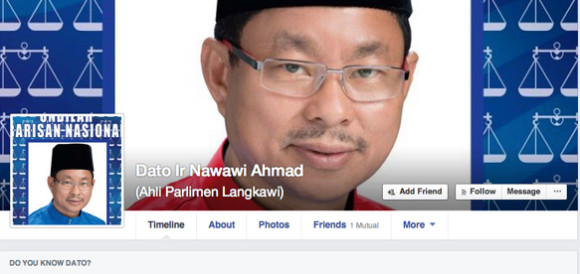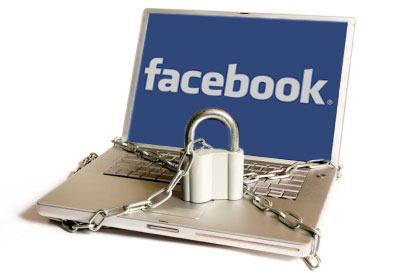WHEN Langkawi Member of Parliament Datuk Nawawi Ahmad posted photographs of the late Karpal Singh’s bloodied body on his Facebook page, few would disagree that he committed an act of gross impropriety. Not only was it a great disrespect to the Bukit Gelugor MP’s family, Nawawi also crossed a line of decency.
But was what he did criminal?

Consider another incident that occurred prior to Nawawi’s post. On 7 April 2014, a 25-year-old man was arrested for posting an image of Datin Seri Rosmah Mansor superimposed on a dead body, which he tagged “Pray4Rosmah”. The man was investigated under Section 233 of the Communications and Multimedia Act and Section 505(b) of the Penal Code.
The police said they took up the case on the basis of reports lodged that claimed the doctored image of Rosmah was a threat to public order, as well as “insensitive to the plight of MH370 passengers and family”.
If a photograph of a corpse doctored to show the face of the prime minister’s wife can be considered an offence, then surely an actual photograph showing the battered body of an esteemed MP is also an offence. Further, Nawawi’s Facebook post was headlined with a provocative statement referring to Karpal’s words “over my dead body”, with regards to the hudud controversy.
Why haven’t the Malaysian Communications and Multimedia Commission (MCMC) or the police acted on Nawawi’s post?
MCMC and double standards
The two cases above are similar enough – aside from one being a doctored image – that the absence of action on Nawawi’s case strongly suggests a double standard is at work.
The MCMC should clarify why it regarded the posting of a doctored image to be more of an offence than that of a dead person, especially when the images of Karpal’s accident were likely to have been official police or Fire Department photographs.
Section 233 of the Communications and Multimedia Act is not a minor offence by virtue of the fact that it carries a custodial penalty element. Any person found guilty can be fined up to RM50,000 or imprisoned for up to one year or both, with an additional fine of RM1,000 for every day the offence continues after conviction.
If he had been charged and found guilty, Nawawi would have faced the possibility of being disqualified as an MP under Article 48 of the Federal Constitution.

This is particularly so when one considers the previous fines meted out under Section 233. In 2009, five persons were charged under the same law for posting comments deemed insulting to the Sultan of Perak following the 2008 general election, and were each fined RM10,000.
Getting away with it
Nawawi claimed that his Facebook profile was administered by several others. While he acknowledged that he had uploaded the post on his smartphone in the car, he claimed his smartphone screen was too small for him to see the photos clearly. He only realised how “bad” they were when he saw them on his desktop later.
In his apology, he added that the post was to a “private” Facebook account. A check on Facebook reveals that the account is not private, but one which anyone can post on and view. In any case, can a public figure such as a Member of Parliament really claim to have a “private”’ Facebook account?
The claim that his smartphone screen was too small is hardly credible, either, given that technology allows users to enlarge images easily.
Nawawi eventually deleted the post and apologised for it, holding out for two days before he did so.
If the lack of action against him was because he retracted the post and apologised for it, then shouldn’t the MCMC and the police also give the man who posted the doctored “Pray4Rosmah” image the same opportunity to make amends?
Was it because no police reports were lodged against Nawawi? Even if this were the case, it does not stop the police from starting an investigation if, indeed, an offence had been committed. Furthermore, the MCMC, as regulator, could have lodged a police report on Nawawi’s posting.
One can’t help but come to the conclusion that when it comes to freedom of digital expression, government politicians are permitted to get away with anything and everything. Not so for opposition politicians (think Teresa Kok and her Onederful Malaysia video) or the regular citizen, for whom the cost of speaking out and sharing views comes at a price if what they post touches a nerve in the powers that be. ![]()
Bernice Low used to blog for CNET Asia but these days, she’s busy dreaming up Hollywood blockbuster movies in her other life as a screenwriter.


neptunian says
Just another example of “double standards”. No need to write about it in so much detail. Anyone with an iota of knowledge knows that double standards are the norm in Malaysia.